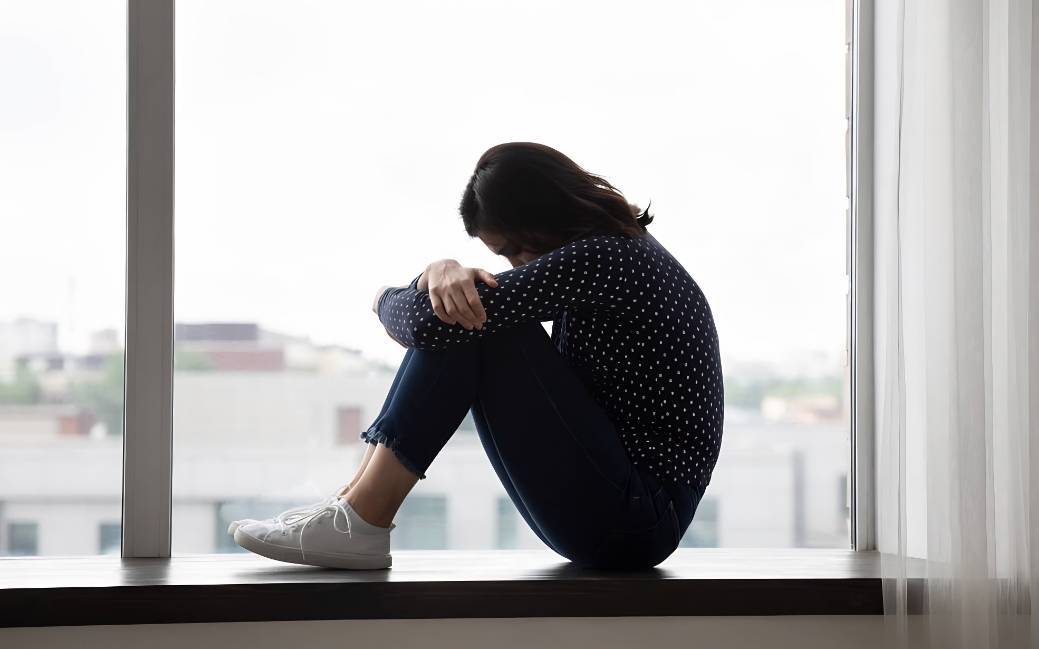Modern people are prone to mental illnesses, among which the most prominent are depression and anxiety. Since ancient times, traditional Chinese medicine has attached great importance to the influence of emotions on human health and has formed a systematic theory and a variety of diagnostic and treatment methods.
In the opinion of Li Kejian, the deputy chief physician of the Department of Mental Illness at the Hubei Provincial Hospital of Traditional Chinese Medicine, depression is mostly caused by blood deficiency, and anxiety is mostly caused by stagnation of liver qi.
Although the causes of depression are complex and related to factors such as blood deficiency, dietary imbalance, liver qi stagnation, and emotional stagnation, clinical findings show that about 30% of depression patients have symptoms of blood deficiency. The five viscera and six bowels of the human body all need blood for nourishment, especially the heart and liver, which are the major consumers of blood. The heart is in charge of the mind and the intellect, if the blood supply to the heart is insufficient, the mind becomes undernourished, leading to emotional, cognitive, thinking, and sleep problems. Blood deficiency in the heart can also lead to insufficient blood in the liver, causing discomfort in the liver qi, resulting in a decline in the regulatory function of the body’s energy and mental activities, eventually leading to a depressive mood. In addition to core symptoms such as low mood, lack of pleasure, decreased interest, reduced energy and willpower, and decreased activity, depression patients with blood deficiency may also show signs of general blood deficiency, such as pale tongue with white coating, weak pulse, pale or sallow complexion, dry hair, listless eyes, loss of appetite, and insomnia.
For depression caused by blood deficiency, the key to treatment is to nourish blood and calm the mind. The spleen and stomach are the organs responsible for the production and transformation of blood and qi in the human body. The nourishment of the blood requires a healthy spleen and regulated stomach function to ensure the production of good-quality blood. In clinical practice, Li Kejian often uses formulae such as Ping Wei Powder and Gui Pi Tang, including herbs such as Astragalus propinquus, Poria cocos, Codonopsis pilosula, and Glycyrrhiza uralensis. In addition to herbal therapy, acupuncture at the Hegu point (the midpoint of the dorsum of the hand) and Zhongwan point (four inches above the navel) can promote digestion and the movement of qi and blood, benefiting the improvement of depressive symptoms. Self-massage of the aforementioned acupoints is recommended, with a suitable intensity that causes a tingling sensation, 5 to 10 minutes each time.
Anxiety disorder, known in traditional medicine as “Yu Zheng,” commonly exhibits stagnation of liver qi, accounting for about one-third of the cases. Traditional Chinese medicine holds that the liver governs the proper movement of qi, and is also in charge of emotions, while the gallbladder is responsible for making decisions; they have a mutual influence on each other. Stagnation of liver qi will lead to an obstruction in the circulation of liver and gallbladder qi and blood, resulting in excessive worry and a decrease in decision-making ability, which may eventually lead to anxiety disorder. In addition to core symptoms such as unexplained fear, excessive worry, and restlessness, anxiety disorder caused by stagnation of liver qi is often accompanied by emotional restlessness, mental depression, sighing, distention and pain in the hypochondrium, fullness in the chest and abdomen, decreased appetite, irregular bowel movements, and discomfort in the throat (such as a feeling of obstruction).
For anxiety disorder caused by stagnation of liver qi, treatment focuses on soothing the liver and regulating qi. In clinical practice, Li Kejian often uses Xiaoyao Pill or Chaihu Shugan San with modifications, including herbs such as Bupleurum chinense, Paeonia lactiflora, and Aurantium. Additional treatment methods include acupuncture or massage at the Zhangmen point (located between the floating ribs, at a point 4 inches to the side of the anterior median) along the course of the liver meridian.
Li Kejian stated that although the symptoms of anxiety disorder and depression may differ, they are like a pair of twin brothers. An anxious person usually also exhibits symptoms of depression, and a person with depression may also have anxiety. Clinically, treatment methods are often based on the actual conditions of the patient, using formulae such as Suanzaoren Decoction, Chaihu Shugan San, Zhigancao Tang, and Wengantang, along with acupuncture, massage, and other physical therapies, which have produced good results. In addition, it is important to adjust one’s lifestyle, maintain regular sleeping habits, eat a balanced diet, avoid staying up late, and exercise regularly, while friends and family should provide the patient with emotional support. Only through multiple strategies can good treatment results be achieved.


